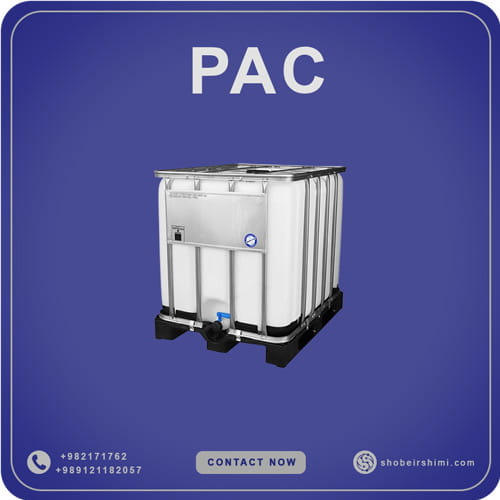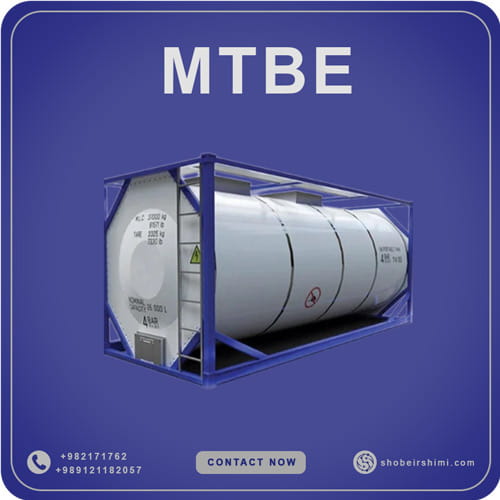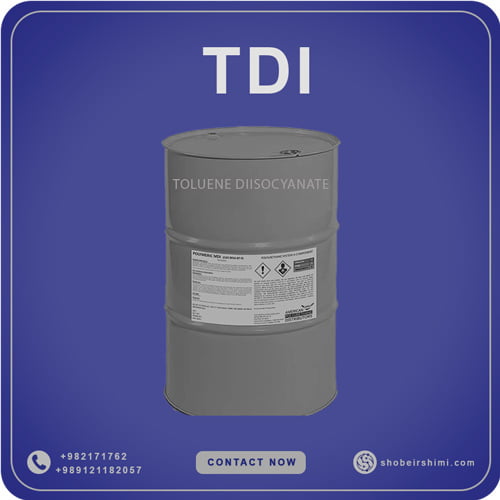- GRADE: Methylene diphenyl diisocyanate (MDI)
- Appearance: Dark Brown liquid
- NCO: 30.0-32.0 WT%
- Hydrolysable Chloride: Max. 0.2 WT%
- Acidity as HCL: Max. 0.05 WT%
- Viscosity at 25(°C) : 150-250 mPa.s
- PRODUCER: Karun Petrochemical Co
- For purchases and inquiries, contact us on WhatsApp.
methylene diphenyl diisocyanate prices
Description
Competitive Methylene Diphenyl Diisocyanate Prices & Supply
At Shobeir Shimi, we are a leading supplier of Methylene Diphenyl Diisocyanate (MDI), a critical MDI raw material in the polyurethane industry. The MDI chemical full form is Methylene Diphenyl Diisocyanate, a highly versatile aromatic diisocyanate. We offer various MDI grades at competitive methylene diphenyl diisocyanate prices across Iran.
Understanding that the methylene diphenyl diisocyanate cost is a key factor for our clients, we ensure transparent pricing based on market dynamics, volume, and packaging. We source our high-purity MDI materials directly from trusted global and regional manufacturers to guarantee quality and consistency.
Understanding the MDI Chemical: Grades and Forms
MDI is available in different forms, primarily Polymeric MDI (pMDI) and Monomeric MDI (MMDI), each suited for specific applications.
Polymeric Methylene Diphenyl Diisocyanate (pMDI)
The most widely used commercial form is Polymeric Methylene Diphenyl Diisocyanate, commonly known as the pMDI chemical. This dark-brown, viscous liquid is essential for manufacturing rigid and semi-rigid polyurethane foams. The typical MDI density for pMDI is a key parameter in formulation, and its multi-functional nature promotes excellent crosslinking for enhanced durability.
Monomeric MDI (MMDI)
Monomeric MDI (MMDI), typically a white crystalline solid often supplied in a liquefied form, is crucial for producing high-performance MDI based products. This grade is preferred for its high reactivity and is used in coatings, adhesives, sealants, and elastomers (CASE applications).
Common Methylene Diphenyl Diisocyanate Uses
The versatile properties of the MDI chemical make it indispensable across numerous industries. Key methylene diphenyl diisocyanate uses include:
- Insulation: Rigid foams for construction panels, spray foam insulation, and refrigeration units.
- Automotive: Interior panels, dashboards, steering wheels, and seating.
- Coatings, Adhesives, Sealants, and Elastomers (CASE): Creating high-strength bonds and durable protective layers.
- Fibers & Textiles: Manufacturing spandex fibers (elastane) and synthetic leather.
- Specialty Products: Producing Thermoplastic Polyurethane (TPU) elastomers and specialty flexible foams.
Factors Affecting the Methylene Diphenyl Diisocyanate Price
The methylene diphenyl diisocyanate price in the market is dynamic. Several factors influence the final cost, including:
- Raw Material Costs: Fluctuations in the price of precursors like benzene and aniline.
- Methylene Diphenyl Diisocyanate Production Cost: Energy prices and plant operational efficiency play a significant role.
- Market Demand & Supply: Global demand from the construction and automotive sectors versus available production capacity.
- Logistics & Packaging: Order volume and the choice of packaging (drums or ISO tanks) affect the final MDI price.
Why Choose Shobeir Shimi for Your MDI Supply?
When you need to buy MDI in Iran, Shobeir Shimi is your trusted partner. We provide a complete solution for your MDI material needs.
- Guaranteed Quality: Direct supply of Monomeric and Polymeric MDI with confirmed specifications. A detailed methylene diphenyl diisocyanate MSDS is provided for safe handling.
- Competitive Pricing: We offer some of the most competitive methylene diphenyl diisocyanate (MDI) prices in the region.
- Reliable Logistics: Flexible packaging in drums or ISO tanks with dependable delivery across Iran.
- Expert Support: Our team offers technical support on material selection to optimize your use of MDI based products.
Contact Us for the Latest MDI Price & Technical Details
Ready to source high-quality Methylene Diphenyl Diisocyanate for sale? Contact the Shobeir Shimi team today for a quote on the current MDI price, availability, and technical data sheets. Our clear communication via WhatsApp and email ensures you get the information you need to keep your production lines running without interruption.
Call us or send a message via WhatsApp:
- International/WhatsApp: +98 912 118 2057
- Email: info@shobeirshimi.com
The minimum order quantity is one full truckload – 22 metric tons. Smaller quantities can be arranged case-by-case.
How do you ensure product quality and payment security?
- Payments are made via our Turkey office with official receipts provided.
- Buyer representatives can verify documentation at our Tehran or Turkey offices.
- We provide trade references and have a proven track record with petrochemical partners.
What is the typical delivery time?
Delivery usually takes 7 to 10 working days, depending on order size and destination.
What are the shipping options?
We offer both ex-factory delivery and border delivery (e.g., Bazargan, Sarakhs), with packaging tailored to client needs.
MDI is in high global demand as a critical raw material for the polyurethane industry. Its wide-ranging applications in insulation foams, coatings, adhesives, sealants, and elastomers drive continuous market growth. The increasing demand from the construction (for energy-efficient insulation), automotive (for lightweight components), and furniture sectors ensures its sustained importance.
Shobeir Shimi exports MDI to markets in Asia, the Middle East, Europe, and Africa, including:
- Middle East & GCC: UAE, Saudi Arabia, Oman, Qatar, Iraq
CIS & Russia: Russia, Kazakhstan, Uzbekistan, Armenia
- South Asia: India, Pakistan, Bangladesh, Afghanistan
- Southeast Asia: Indonesia, Vietnam, Taiwan, South Korea
- Europe: Poland, Spain
- Africa: North and East Africa
Why Choose Shobeir Shimi?
- Full export documentation (COA, MSDS, invoice, packing list)
- Flexible delivery terms: Ex-Factory, FOB, CIF
- Customized packaging and multilingual labeling
- Expertise in customs clearance and logistics for timely delivery
With a strong commitment to quality, reliable supply, and competitive pricing, Shobeir Shimi is your preferred partner for MDI procurement.
FAQ
- What is the minimum order quantity (MOQ)?
The minimum order quantity is one full truckload – 22 metric tons. Smaller quantities can be arranged case-by-case.
- How do you ensure product quality and payment security?
- Payments are made via our Turkey office with official receipts provided.
- Buyer representatives can verify documentation at our Tehran or Turkey offices.
- We provide trade references and have a proven track record with petrochemical partners.
- What is the typical delivery time?
Delivery usually takes 7 to 10 working days, depending on order size and destination.
- What are the shipping options?
We offer both ex-factory delivery and border delivery (e.g., Bazargan, Sarakhs), with packaging tailored to client needs.






Reviews
There are no reviews yet.